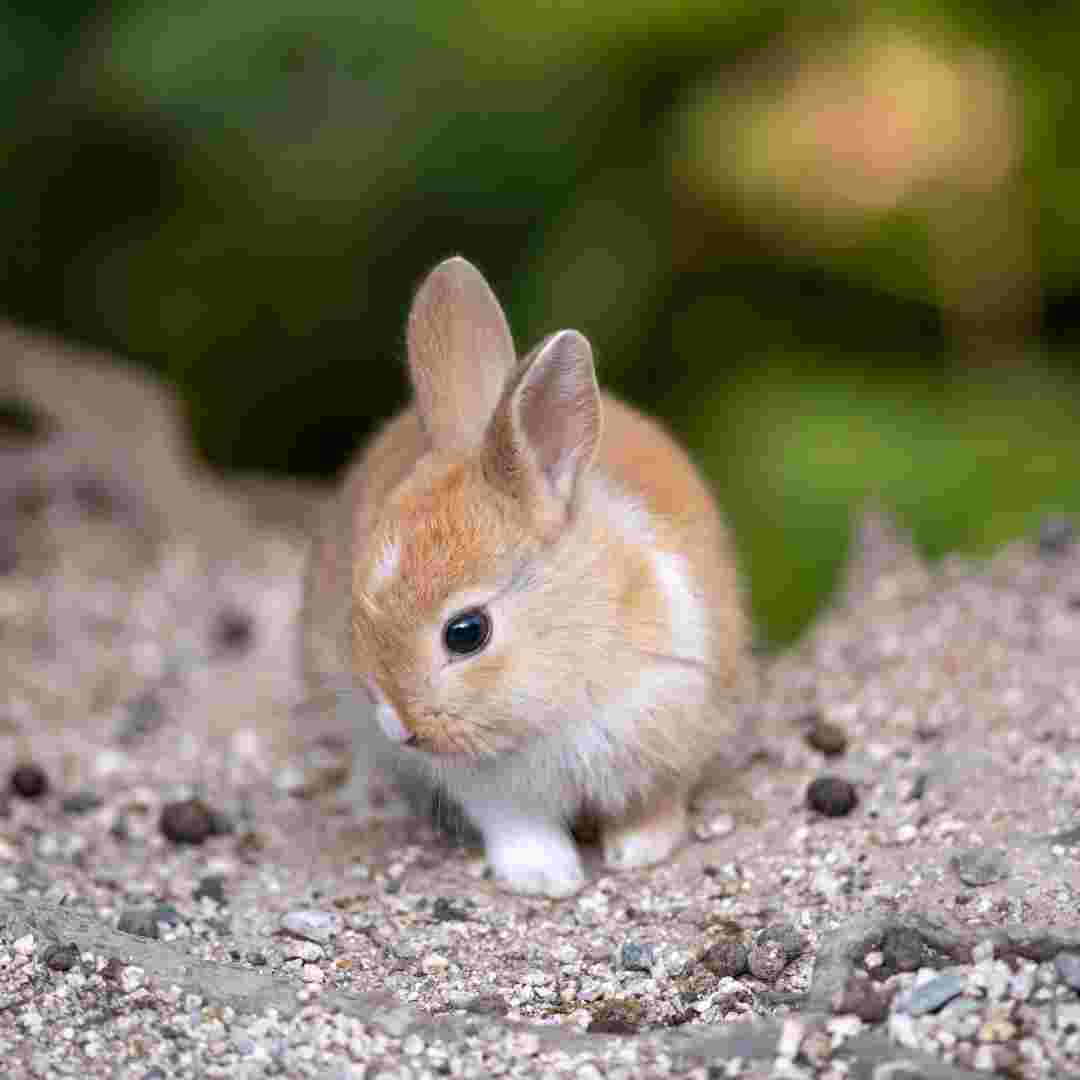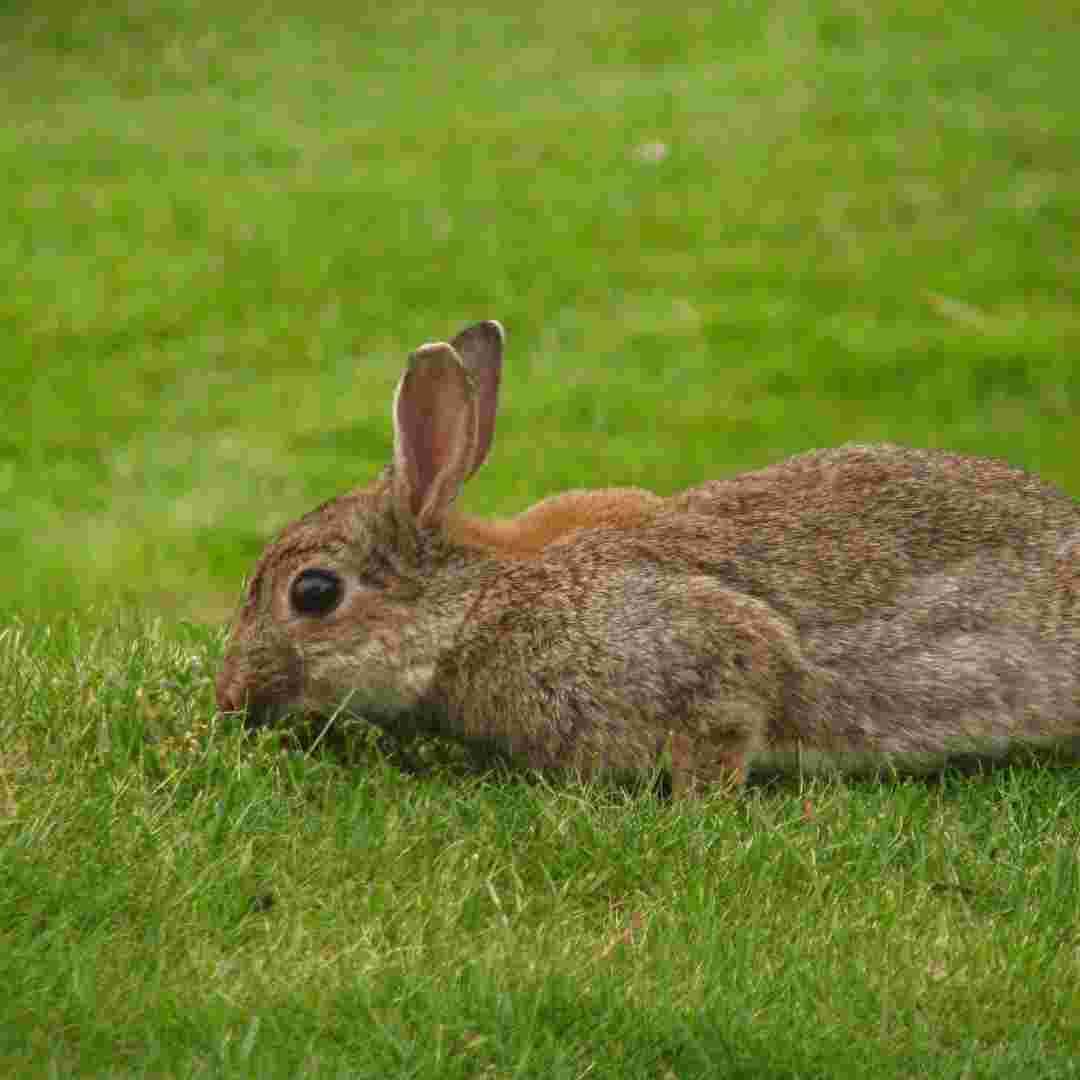Contents Table
Introduction
The Most Common Health Issues That Cause Rabbit Mortality
How Poor Diet Can Kill Rabbits Early
How Rabbit Overpopulation Can Cause Disease and Death
Stress Can Cause Serious Illness and Death in Rabbits
Rabbit Mortality: How Predators Cause Deaths
Q&A
Conclusion
Introduction
Rabbits are delicate and need special care to survive long. Unfortunately, many things can kill a rabbit. These include medical issues, environmental factors, and inappropriate treatment. Knowing rabbit death causes can help you protect your rabbit's health and longevity.
The Most Common Health Issues That Cause Rabbit Mortality
Rabbits are beloved pets, but they have several health risks. Knowing the leading causes of rabbit death might help owners prevent them.
Rabbits die most from gastrointestinal stasis (GI stasis). Toxins build up in the body when the digestive system slows or stops. Lethargy, poor appetite, and soft, sticky stools are GI stasis symptoms. Fluids and digestive stimulants are usually given.
Rabbits die from respiratory illnesses too. Bacteria and viruses can cause these illnesses, which are hard to treat. Respiratory infections include sneezing, coughing, and breathing problems. Treatment usually involves antibiotics and support.
Other health difficulties for rabbits include dental disease, malocclusion, and flystrike. Plaque and tartar buildup on teeth causes dental disease, which can cause pain and difficulties eating. Misaligned teeth cause pain and difficulties eating. Rabbits with flystrike suffer from illness and pain from fly eggs on their fur.
Rabbits also get fleas, mites, and worms. Parasites can cause diarrhoea, hair loss, and itching. Deworming and flea control are usual treatments.
Owners can prevent rabbit deaths by recognising the main causes. Healthy eating, veterinary exams, and parasite control are included. Rabbits can live long and healthy with proper care.
How Poor Diet Can Kill Rabbits Early
Bunnies need good diet to stay healthy. Nutritional deficiencies can cause several health issues, including early mortality. This post will address rabbit food and how bad nutrition can kill them early.
Herbivore rabbits need a high-fiber, low-fat, protein diet. Hay, fresh veggies, and a little pellets are good for rabbits. Hay should be a rabbit's main food since it contains fibre and aids digestion. Fresh vegetables provide vitamins and minerals, so serve them in small amounts. Small amounts of pellets are recommended because they are high in calories and can cause obesity.
Rabbits can develop gastrointestinal, obesity, and dental difficulties from poor nutrition. Lack of fibre in a rabbit's diet can cause diarrhoea and constipation. Overfeeding rabbits can cause obesity since they gain weight quickly. Hay helps rabbits wear down their teeth and prevent overgrowth, so a diet low in hay might cause dental issues.
Poor nutrition can kill rabbits prematurely. Malnutrition and immune system weakness can result from a rabbit's diet lacking vitamins and minerals. This can cause infections and diseases that are lethal if neglected. Obesity can potentially cause catastrophic cardiac and respiratory issues.
Finally, rabbits need a nutritious diet to stay healthy. Poor diet can cause gastrointestinal, obesity, dental, and premature death. In order to give rabbits with a diet high in fibre and low in fat and protein, hay, fresh vegetables, and a little amount of pellets should be fed.
How Rabbit Overpopulation Can Cause Disease and Death
Population growth is a global issue. This applies especially to rabbits. Rabbits are cute, but too many can cause health and safety hazards.
Overcrowded rabbits can grow stressed. Their health and well-being may suffer. In crowded conditions, myxomatosis and rabbit hemorrhagic illness can spread swiftly in rabbits. These infections can kill and spread to cats and dogs.
Overpopulation poses health and safety risks. Rabbits multiply swiftly and can become uncontrollable if not spayed or neutered. Rabbit populations can rise, causing issues for nearby fauna and vegetation. Garden and grass damage can be caused by rabbits.
Lastly, overpopulation can increase abandoned rabbits. People may abandon their rabbits in parks or other public places when they have too many. Rabbits may not find food or shelter, which is harmful. Abandoned rabbits can transmit disease and other problems, endangering the population.
Remember that too many rabbits can cause major health and safety hazards. Before getting a rabbit, make sure you can care for it. Make sure you have enough space and money to care for your rabbit and spay or neuter it to prevent overpopulation.
Stress Can Cause Serious Illness and Death in Rabbits
Stress affects numerous animals, including rabbits. While some stress is acceptable and even good, too much can harm a rabbit. Stress can cause sickness and death in extreme circumstances.
Rabbits can develop physical and psychological problems from stress. Stress can lead rabbits to lose appetite, become lethargic, and have digestive difficulties. It can also increase their risk of disease and infection. Psychologically, stress can make rabbits aggressive, withdrawn, or worried.
Stress can cause significant rabbit ailments. Chronic stress can damage rabbits' immune systems, making them more susceptible to myxomatosis and viral hemorrhagic illness. Stress can make rabbits more susceptible to gastrointestinal stasis, which slows or stops digestion. Dehydration, starvation, and mortality can result.
Stress can influence rabbit behaviour as well as their physical and mental health. Stressed rabbits may become aggressive or start gnawing furniture or burrowing in the carpet. These behaviours can harm rabbits and owners.
Recognising and reducing rabbit stress is crucial. A safe, comfortable, and spacious setting with many of toys and activities can relieve stress. Feeding a rabbit a high-fiber, low-sugar diet can also improve its digestive system. Finally, giving your rabbit lots of love and attention helps minimise stress and keep them healthy.
In conclusion, stress can harm rabbits. Physical and psychological problems, major illnesses, and behavioural changes can result. Recognising and reducing rabbit stress is crucial. You can keep your rabbit healthy and stress-free by giving a safe, comfortable home, a balanced diet, and lots of love and care.
Rabbit Mortality: How Predators Cause Deaths
Predators kill many rabbits. Many predators hunt on rabbits, affecting their populations. Understanding the sorts of predators that kill rabbits is crucial to understanding how they affect rabbit mortality.
The most common rabbit predators are foxes, coyotes, and hawks. Foxes, rabbits' main predator, can kill large numbers of rabbits. Tracking and pouncing on rabbits is fox hunting. Rabbit-catching burrows are also possible. Pack-hunting coyotes kill rabbits. Coyotes chase and kill bunnies with their keen teeth. Rabbits are also preyed upon by hawks, who swoop and catch them.
Other animals can kill rabbits besides these predators. Domestic cats, dogs, and other animals can kill rabbits. These animals are often released by humans and can kill rabbit populations.
Predators can kill rabbits significantly. Rabbit populations might decline due to predators. Predators can also reduce rabbit births, lowering population reproduction. Predators can also reduce adult numbers, lowering population survival.
Predators significantly affect rabbit mortality. Rabbit populations might decline due to predators. Predators can also reduce rabbit births, lowering population reproduction. Predators can also reduce adult numbers, lowering population survival. To safeguard rabbit populations, it's crucial to understand how predators affect rabbit mortality.

Q&A
1. What are common rabbit deaths?
Rabbits die from gastrointestinal stasis, respiratory infections, parasites, trauma, and cancer.
2. What are ill rabbit symptoms?
A sick rabbit has a decreased appetite, lethargy, weight loss, diarrhoea, and trouble breathing.
3. How can I keep my rabbit healthy?
Keep your rabbit healthy with a clean, safe habitat, a balanced diet, and frequent veterinary treatment.
4. What to do if my rabbit is sick?
Take your ill rabbit to the doctor promptly for diagnosis and treatment.
5. How can I tell my bunny hurts?
Hunched posture, unwillingness to move, and excessive grooming are signs of rabbit suffering.
Conclusion
Overall, disease, injury, starvation, and predation can kill rabbits. Rabbits die largely from parasites, bacterial illnesses, and viruses. Rabbits can die from injury, starvation, and predation. To prevent these deaths, rabbits need a good diet, suitable housing, and regular veterinary treatment.
